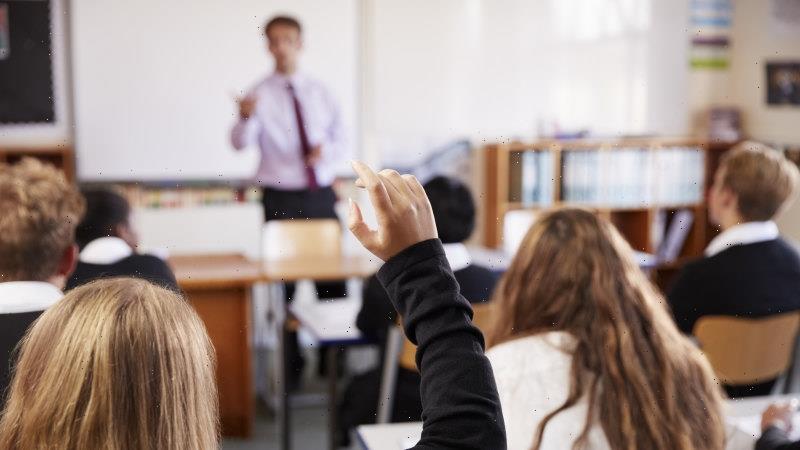For our free coronavirus pandemic coverage, learn more here.
The back-to-school plan announced by the Victorian government on Sunday strike a sensible balance between the essential goal of getting children back to class and managing the spread of the Omicron variant.
COVID-19 has wreaked havoc on all aspects of Australian life. Children have had a particularly hard time. More than three terms of remote schooling in two years have disrupted learning, social development, and friendships. But perhaps most worrying have been the reports of declining mental health of children, associated with isolation, disrupted routines, and uncertainty about the future.
School closures have taxed families too –and particularly working mothers – who have had to find ways to juggle home-schooling with all the other stresses of living through a pandemic.
The government is right to make getting children back to school a top priority. But keeping schools open won’t be easy. It will require commitment, flexibility, and goodwill from the whole community, not just teachers.
The decision to mandate a third vaccine dose for school and early childhood staff is the right call. The continuation of mask rules for all teachers and children in grade 3 and above also makes sense. And – as recommended in a Grattan Institute report last July – a program of regular rapid antigen tests for all students and staff is welcome.
But rules can only make a difference if they are followed. Parents and the broader community will need to play their part.
Rules can only make a difference if they are followed.Credit:iStock
Just as important as mandating booster shots for teachers is accelerating the take-up of boosters across the whole community, as well as vaccinations for the large majority of 5-to-11 year olds who are still yet to receive a first dose. Parents can help keep schools open by getting their own booster shots and encouraging family members to do the same.
Masks are very effective – but only if worn. Parents should explain to their children the importance of mask wearing.
The success of the rapid antigen test surveillance program relies on overcoming the logistical challenges of distributing tests to students and ensuring they are actually used at home, with the results acted upon appropriately. Schools will need support to bring families on board, with clear communication strategies tailored to different languages and cultural backgrounds.
On the school operational side, the looming threat of staff shortages is likely to be the biggest headache for school leaders. New guidelines that allow teachers to keep working if they are a close contact, provided they are asymptomatic and return a negative rapid antigen test daily, should make a big difference, while keeping risks fairly low.
Government guidelines for schools that provide for staffing work-arounds, including combining classes and drawing on a pool of retired teachers and other support staff, will also help. But there is a good chance school will look different for many children, and many staff will be asked to work outside their comfort zone.
This is not the smooth start to Term 1 we’d all been hoping for, and it might be tempting to ask if it’s worth it. We think the answer is a clear yes. Victorian children have already endured huge disruptions to their schooling. They deserve every chance to have the best start to 2022 that we can provide.
We should all do our bit to make this possible.
Dr Jordana Hunter is Education Program Director at the Grattan Institute. Dr Stephen Duckett is Health Program Director at the Grattan Institute.
Most Viewed in National
From our partners
Source: Read Full Article

